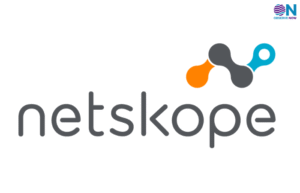Meta’s Quiet Policy Update Could Open Doors to Private Photo Usage

Meta has sparked caution among Facebook and Instagram users by subtly expanding the scope of its terms and conditions. While no overt changes were highlighted, the update grants Meta broad rights that users may inadvertently accept—rights that extend far beyond current expectations.
Historically, Meta’s platforms have relied on publicly shared content for AI model training. However, recent shifts indicate a growing appetite for private, unpublished photos housed in users’ personal camera rolls. Though Meta denies current use of these private images for AI training, it has not ruled out future access, creating a legal avenue that warrants user scrutiny. This highlights why users must not treat terms and conditions as perfunctory checkboxes: they may unknowingly sign away control over deeply personal content.
Meta’s introduction of optional “cloud processing”—enabling automatic upload of unshared photos for features like AI-generated collages—illustrates this new paradigm. Users may opt in, but the terms give Meta ongoing data usage rights, including retention and metadata analysis, with ambiguous constraints about future AI applications.
Experts emphasize the broader importance of reading terms, noting that corporations frequently include clauses covering content ownership, data collection, shared usage rights, liability limitations, and legal governance. Even established platforms like Facebook, Instagram, and WhatsApp may have terms that seem benign yet include provisions triggered by new features, making a simple click potentially binding .
Academia and consumer advocates alike have warned against blindly assenting. Studies reveal that even simplified privacy policies can conceal complex data-sharing permissions that users often misunderstand. Some terms grant companies sweeping rights over intellectual property, limit users’ legal recourse, or allow content to be used in marketing without compensation .
The stakes grow even higher as social media apps evolve. Meta’s recent content moderation overhaul—ending third-party fact-checking, loosening hate speech rules, and shifting enforcement to community submissions—accentuates how evolving terms may justify future platform policy shifts. What seemed acceptable last year may not apply today, but previous agreement to blanket terms often makes such changes legally permissible.
For most users, the solution is simple: pause before tapping “I agree.” Review key clauses, particularly those involving data usage, privacy, intellectual property, dispute resolution, and account termination. Changes to camera roll access should prompt fresh consent, not default approvals hidden behind glossy features.
Ultimately, these developments signal an important shift: users may be conceding more rights than they realize. With Meta granting itself extended latitude through AI tools and cloud features, transparency and intention in agreement are crucial. Mindful reading of terms isn’t just legal due diligence—it’s the only way to truly understand what personal data and content we may be surrendering in return for convenience.
Protecting privacy starts with awareness. Users are now empowered to renegotiate the trade-off—partaking in innovation without sacrificing control. The recent changes are a compelling reminder: always read before agreeing.
















